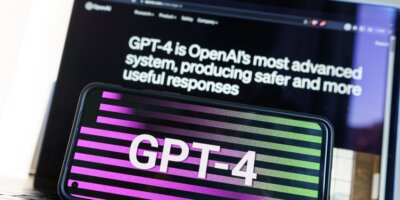
What generative AI means for Singapore businesses
Article written by Pierluigi Cau, Regional Director of Field Services, APAC, GitHub
AI is already impacting people’s daily lives in countless ways, gripping the world as its impact accelerates. But for the first time, businesses, not just consumers, are now feeling the power of generative AI.
Undoubtedly, the convergence of open-source software and AI will power a new era of software development that will fast-track business innovation in every sector. The transformative potential AI can deliver has opened business leaders’ minds even more to the power of software development on business growth. We’re on the brink of a new era of enterprise innovation.
This could not be more timely for Singapore, with the 2023 budget outlining measures for business innovation that encourage leaders to think about ways to transform their organizations in tandem with upskilling their people. Businesses in Singapore are rightly asking themselves how this fusion of open source and AI will benefit them, educating themselves on the impact and how to embrace and implement it.
From speaking with major enterprises in Singapore, I am curious about what generative AI can deliver for them. This is exactly the right mindset – while we’ve only just scratched the surface of what we can achieve with generative AI, its true potential is yet to be realized. Preparing for this new future has rapidly become vital to business planning.
We know that software development will never be the same again, and there are some major incentives in ensuring organizations have the right foundation from which to capitalize on the opportunity generative AI will deliver. From my vantage point, AI will impact Singapore’s businesses in three critical ways:
Accelerated innovation
AI can make businesses significantly more productive at a fundamental level, removing much of the dry, mundane work that typically occupies so much of a developer’s time. Empowering them to stay “in flow” frees them to focus on the bigger picture – resulting in faster innovation.

Pierluigi Cau, Regional Director of Field Services, APAC, GitHub
So much so that research shows that GitHub Copilot helps developers code up to 55% faster, with 75% feeling more fulfilled and able to focus on more satisfying work. When you quantify the impact of that organization-wide, it’s virtually unimaginable what it will do for enterprises.
Unsurprisingly, developers intuitively recognize that the introduction of AI in the development process is a generational shift. For sectors like financial services (FS), where Singapore has traditionally punched above its weight on a global scale, generative AI represents a major opportunity.
While embracing AI requires a careful long-term approach, AI can almost instantly deliver productivity advantages. In a highly competitive market like FS, with skyrocketing customer expectations for digital services, that’s an extremely attractive prospect – particularly against a challenging macroeconomic backdrop.
A solution to tech skills shortages
Singapore has a well-publicized shortfall in tech talent, which poses a challenge to the future of innovation. As with almost all nations, demand for tech skills is growing faster than businesses can source and retain the right talent.
The scale of the challenge is significant. The government’s Smart Nation Initiative predicts that the ICT sector will need another 60,000 workers by 2023 – but Singapore only produces 2,800 ICT graduates annually. Plus research commissioned by AWS indicates that Singapore will need 1.2 million additional digital workers by 2025 to remain competitive – an increase of 55% on current levels.
But by leaning into open source and AI, Singapore businesses can plug the gap.
Firstly, the productivity advantages of AI empower developers to maximize their time, helping them achieve more with fewer resources. Secondly, capitalizing on the AI opportunity requires organizations to implement a progressive open-source approach – and by definition, open source enables organizations to access a global pool of ambitious developers. There are no geographical boundaries to finding the right talent.
Lastly, developers want to work in environments that prioritize their working conditions and fuel their ambition. By embracing AI, businesses set themselves up to attract top developers and retain existing talent.
Democratization of software development
Historically, software development has been the preserve of technically-trained career developers. While there will always be a strong element of technical know-how required in developing cutting-edge software, AI indeed lowers the barrier to entry for people from different backgrounds and experiences.
Almost anyone can transform themselves into a junior developer, even with little existing knowledge, if they are clear on what they want to achieve. That can only be a positive development when you consider growing Singapore’s digital economy requires growing its developer community.
Of course, generative AI is no substitute for developer’s experience and skills. While AI is changing how developers work – enabling them to do so faster, better and happier – developers are still in charge and own the resulting code.
The latest tools empower users to focus more on the bigger picture of design and strategy than on actual coding. In many ways, it changes what it means to be a developer, enabling greater contributions from a wider cross-section of the business community. AI will complement how developers work and empower them to write code more easily with greater focus and creativity. That can only benefit innovation.
While no business in Singapore can justifiably claim to grasp the precise impact of AI on their business at this stage, there is no getting away from the transformational impact AI and open source will deliver. It will enable new competitors to fast-forward their growth and skip lengthy R&D phases, potentially placing even more pressure on established enterprises.
What’s critical for businesses in Singapore to assess now is how quickly they can take their first steps into a new era of AI-powered software development, supporting the country’s aims to maintain its position as a competitive global business hub. While change is always challenging, the risk of not making such a crucial move has the potential to be far more disruptive.
The views in the article are that of the author and may not reflect the views of this publication.
READ MORE
- The criticality of endpoint management in cybersecurity and operations
- Ethical AI: The renewed importance of safeguarding data and customer privacy in Generative AI applications
- How Japan balances AI-driven opportunities with cybersecurity needs
- Deploying SASE: Benchmarking your approach
- Insurance everywhere all at once: the digital transformation of the APAC insurance industry


